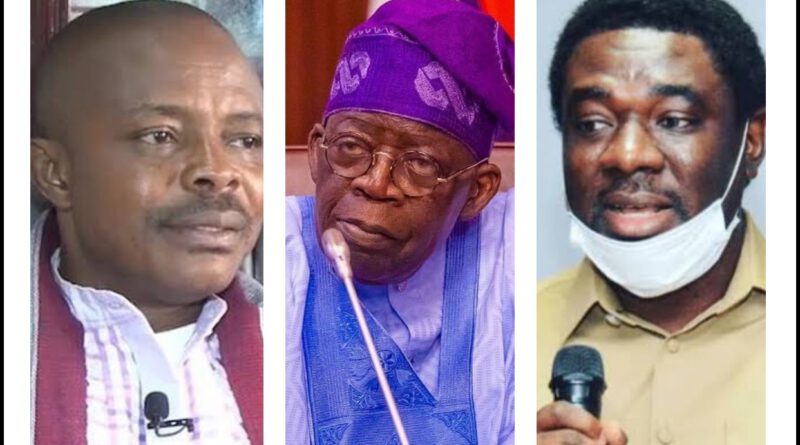Can Nigeria Survive Another Nationwide Shutdown? By Taiwo Olapade
The one million dollar question on the minds of many Nigerians is, “Can the country survive another nationwide shutdown?”
Random sampling of views of Nigerians on the question will surely leave us with a divergent reactions based on how an individual reflect on the state of the nation.
However, one fact that is not controversial to many is that the nation’s economy at the moment is very fragile and any further distortions could turn to be a disaster.
At the moment, the food inflation rate in the country has skyrocketed to 31.5% as at September which is unprecedented in the nation’s history. If you and I do not have an understanding of what this means, I am very sure that Economic/Financial Gurus are extremely worried with the dangers that lies ahead.
Can we also provide answer to this question. Who suffers from the consequential effects of strike or protest by the labour unions as the case may be?. Your guess is as good as mine, the ordinary Nigerians, the masses and the poorest among the poor.
Ofcourse, the President will not be happy to see the labour unions carrying out their threats to shut down the economy but will he personally feel the impact just like every other political office holders. No matter how long the strike, it will not stop neither will it reduce the salaries and allowance of Mr President, Vice President, Ministers, National Assembly members, Governors and all other political appointees.
No doubt the constitution allows Nigerians and by extension the labour unions to ventilate their grievances against government by embarking on a peaceful protest or strike as the last resort when negotiations failed, but who suffer more from any industrial action that the labour unions are fighting for.
Don’t get me wrong because I am just being logical with my opinion on this matter. The damage caused by the 9 month-long ASUU strike to the nation and the education sector in particular is far from over. Just like I said earlier, there was never a period during the strike that the salary of the then Minister for Labour and Employment, Dr Chris Ngige was stopped even when ASUU and some Nigerians demanded for his resignation or sack by President Buhari. Ngige finished his tenure smiling home with lot of goodies but members of ASUU that embarked on strike for what they termed the good of the country were not paid for the period they downtools after government applied the No work, No pay doctrine.
The recent two-day warning strike by the NLC though with relative achievements affected mostly ordinary Nigerians.
Successive Governments in the country must also share in the blame why the labour unions embarked on strike. I say this with due respect because of the failure of government to fulfil promises and agreements signed with the union. The result of this is lack of TRUST in government by the people.
Even when government had good intention and implementing policy that will benefit the masses, Nigerians are always skeptical and quick to say that its another trick, the one we call ” Sakamaje” in local parlance.
I make bold to say that the administration of Asiwaju Bola Tinubu will write his name in Gold if he returns the TRUST deficit in our system. Is it so hard for Government to say the truth at all times? Like we all know that truth will ever remain while it takes one lie to sustain another.
President Bola Tinubu has made some promises to Nigerians which i believe if fulfilled will endear his government more to the people.
In a nationwide broadcast to mark the country’s 63rd Independence Anniversary, the President pledged to reshape and modernize the economy and to secure the lives, liberty and property of the people.
He also spoke about bold reforms to place our nation on the path of prosperity and growth as well as a Nigeria where hunger, poverty and hardship are pushed into the shadows of an ever fading past.
Another major highlights of the Broadcast was the introduction of a provisional wage increment to enhance the federal minimum wage without causing undue inflation.
According to Mr President, for the next six months, the average low-grade worker shall receive an additional Twenty-Five Thousand naira per month.
The Infrastructure Support Fund for states mentioned by the President for investment in critical areas cannot be wished away.
Less we forget, the federal government had released #2bn each to 36 states of the federation and the FCT to provide immediate relief to the people against the impact of rising food and other prices orchestrated by subsidy removal.
Making the economy more robust by lowering transport costs will be key. In this regard, President Tinubu disclosed that they have opened a new chapter in public transportation through the deployment of cheaper, safer Compressed Natural Gas (CNG) buses across the nation.
The President concluded his speech by thanking members of the civil society organizations and labour unions for their dedication to Nigerian democracy. He said that they may not always agree but have value their advice.
The big question remain, can the nation afford another shutdown?




